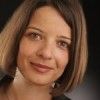Academics can revive refugees' dormant intellectual capital
#CriticalThinking
Carmen Bachmann is Professor of Business Administration and Taxation at Leipzig University and CEO of Chance for Science
Europe has an opportunity. The influx of refugees crossing the continent’s borders has elicited a mixed wave of emotions among politicians and citizens – but where some see chaos and a burden for Europe, academics see potential for a great contribution.
In the summer of 2015 I embarked on a small project that grew to an extent I could never have previously imagined. Now, two years later, we can draw on lessons from this project’s growth and implement this knowledge on a larger scale to address the issue of academic refugees’ underused human capital. This capital holds the potential to advance academia both here in Europe and in refugees’ homelands.
The seed for the idea was planted as I ran from lecture to lecture, a calendar brimming with appointments, meetings and deadlines. As I found time to take a breath in my office, staring at a daunting stack of papers, it dawned on me that while I was struggling to keep up with my endless to-do list, there were skilled and educated refugees forced to sit idle. I imagined a fellow academic, but one who had been forced to leave their previous life: we were both academics but facing opposite problems. We could, and we should, find a way to help each other.
When all else is left behind, a refugee’s knowledge remains within them
I acted on this idea and, with a committed graduate student, developed the online networking platform Chance for Science to connect refugees and German academics. The remarkable finding was that initially the majority of responses came from the local side– from ‘helpers’ and not, as one would imagine, from refugees. Astonishingly, German academics revealed a strong desire to sign up and connect with refugee academics. I realised I wasn’t alone in my acknowledgement of academics’ immense inactive intellectual capacity, and the need for this to be reinvigorated.
For refugees who have already received an education, it is vital to recognise this part of their identity and to nurture their knowledge and intellectual capital. A refugee’s academic training and intellectual interests travel with them wherever they go and follow their flight. When all else is left behind, this knowledge remains within them and continues to form a key part of who they are. If refugees are given the necessary resources, networks, and opportunities, they can reconnect with their true identities in Germany or elsewhere in the world.
Chance for Science has demonstrated the potential for a mutually beneficial relationship in which both settled academics and refugee academics can profit from the facilitated exchange of knowledge. It is crucial not only to prioritise working with refugees but to formulate a system that allows academics to make use of their positions of influence. The ideal system can garner all the various acts of support, no matter the magnitude – for instance, giving a free lecture or making it accessible online, becoming a mentor, providing research resources or granting library access to refugees. These small acts can, together, amount to meaningful change.
On an individual level, academics can reach out based on shared interests to identify possibilities for interesting collaborations and exchanges of ideas within their field of expertise. A structure that mobilises local academics to fulfil their passion for sharing knowledge will create experiences that produce fruitful benefits across Europe.
Imagine that Chance for Science could expand beyond the limits of a small volunteer-based organisation and reach the capacity of a professional institution. It could provide a structure that not only facilitates personal engagement between professors and academic refugees but perhaps even extends to other marginalised groups suffering from a similar absence of intellectual exchange.
We value students who volunteer and work for non-profits. Why don’t we place as much significance on such work for those in more senior positions in the academic world? Universities could easily acknowledge such involvement, perhaps via a points system whereby honours would be awarded based on a level of social engagement. Additional funding could be provided to conduct research with a refugee academic as a collaborator. Academics should not be forced to solely focus on grants and ranking of their publications: they should rather receive proper recognition from their institutions when they collaborate with other academics from around the world who have been marginalized.
We value students who volunteer – why don’t we place as much significance on such work for senior academics?
Such a step would capture the true essence of a professor – one who seeks to share knowledge and to be intellectually engaged wherever and whenever possible. One academic has the power to inspire others. This ripple effect would be tangible and the radius of impact could be boundless.
When looking at the daunting refugee crisis and wondering where to help, one doesn’t have to look far. As a professor, not a lifeguard, I knew my place wasn’t rescuing refugees from the water on the Italian coast. I recognised that academics need to apply their knowledge, to keep their intellect active, or risk losing it. It was this area where I could be most effective. Knowledge is valuable wherever it is located – a Syrian engineer can both apply his skills and contribute to technological advances in his host country and, one day, bring them back to Syria to help in the rebuilding process.
Institutional strategies alone are not enough to make the academic world more accessible for refugees. Rather, a sustainable solution can only be achieved through a bottom-up approach, which makes use of the existing motivation found among local academics. Institutions must facilitate, not neglect, this inclination to make society recognise refugees’ human capital.
This article was originally published in the print journal Europe’s World issue 35. To order a copy of this issue, please click here.
Stay informed
